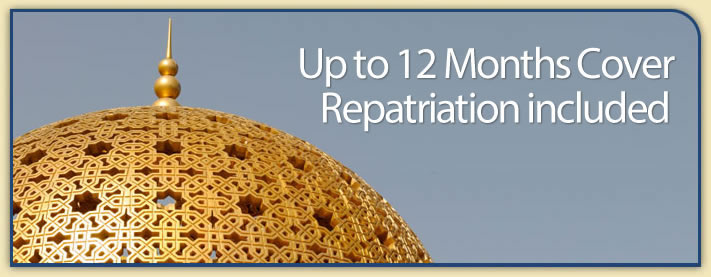Essential Advice
Travel health
It’s difficult to underestimate the value of taking certain precautions for the sake of your health before you travel abroad. If you get ill or have an accident, access to treatment may be difficult or too expensive for you to afford to pay yourself. So don’t neglect to get travel insurance before you go abroad; it’s probably the most important thing you can do before you set off. You can make life a whole lot easier for yourself if you get hold of Form E111, from the Post Office which entitles you to free medical attention in Europe. Pick up a form for more details!
Vaccinations
If you’re travelling to, or passing through, a country that requires you to be vaccinated against certain diseases, you may need to produce certificates of proof before you’re allowed in. Check with your doctor’s surgery that will be able to advise you.
Insuring your holiday: covers cancellation or curtailment of your holiday, missed departure, delay, lost tickets or failure of an ABTA travel operator.
Insuring your luggage: can cover loss, theft, damage and delay.
Insuring yourself: Our Backpacker insurance policy will cover any medical expenses abroad due to illness or accident, permanent disability and death. Also personal liability of up to £2million, if you injure someone else or damage their property.
If you become ill whilst travelling, don’t forget that medical treatment abroad can be expensive, so it’s vital you are insured before you go. You must take your policy documents with you to ensure you follow the correct procedures in seeking medical treatment, even in an emergence. Check that your policy covers you for ALL the sporting activities you undertake during your trip - with our Backpackers policy, you can increase your activities even after you have started your trip.
Official papers and money
Official travel documents and traveller’s cheques may seem like a hassle, but they’re a necessary part of travel. If you are travelling in Europe you should take out an European Health Insurance Card (EHIC). These can be obtained online or at your local Post Office.
Passport
Pick up an application form from your local Post Office. Have the form signed by a professional who has known you for two years, like a teacher or doctor. Take the signed form back with a copy of your birth or adoption certificate, two identical passport photos and the correct fee. Instead of sending it yourself - and to check for errors - if you pay a small extra fee to the Post Office, they will check your form, send it off for you and get your passport back to you within two weeks.
You can contact the Passport Agency on 08702 411902.
Visas
Many countries outside Europe ask you to produce an entry visa as well as your passport at immigration, before you’re allowed in. You can stay a limited amount of time without a visa, but it’s so much easier to arrange a visa before you go abroad. You can check the countries you are travelling to on our countries pages. If in doubt ask your travel agent or contact the Foreign Office on 020—7238 4503.
You can also visit the Foreign Office website at: www.fco.gov.uk
Trouble with the law
Iignorance of the law will probably not help if you do find yourself in trouble. The best advice is to respect the country and its people and stay well clear of anything that may seem illegal or suspicious. Above all - use your common sense. Follow these simple principles, relax, and enjoy your time abroad!
However, if you do end up in real trouble abroad, you can get in touch with the British Embassy. Their powers are limited but they can help if you lose your passport, and they will help you deal with the local authorities to some extent, they will help you get a lawyer. Be warned however, that embassies cannot solve all your problems abroad for you, and they won’t pay for your flight home if you get really stuck.
Travel money
The safest way to take cash abroad with you is in the form of traveller’s cheques. Cash, once gone, will never return but a traveller’s cheque can be refunded to you if it goes missing. Each traveller’s cheque has a unique serial number, and you’ll be asked to sign each one when you buy them. When you exchange them for cash you’ll have to sign for them again, and show your passport. If your traveller’s cheques go missing then you can phone the company that sold them to you (they should provide you with an emergency phone number) and quote the serial number of the missing cheques. You need to keep the receipts showing the serial numbers of the cheques and quote them. Keep these numbers in a separate place from the cheques themselves!



